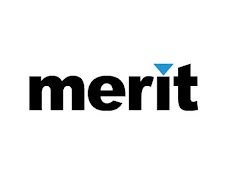In today’s branding and merchandising world, small details make a big difference. One of those details is the badge — a timeless symbol used for identity, recognition, and promotion. Among all badge types, bespoke enamel badges stand out as a premium choice, offering superior quality, customisation, and durability. But what really separates these badges from regular ones? Let’s explore how bespoke enamel designs bring more value, style, and distinction to your brand or event.
Understanding the Craft Behind Bespoke Enamel Badges
At first glance, bespoke enamel badges may look similar to regular ones, but their craftsmanship tells a different story. These badges are custom-made using enamel filling, which gives them a smooth, polished look and a long-lasting finish. The term “bespoke” highlights their uniqueness — every detail, from the shape to the colour palette, is designed according to your specific vision.
Unlike generic badges that are mass-produced, bespoke enamel versions are handcrafted with precision. The design is stamped onto metal, and the recessed areas are filled with enamel before being fired at high temperatures. This process creates a vibrant, glossy surface that resists fading and wear. The result is a badge that feels substantial and looks professional, making it ideal for corporate branding, clubs, schools, and collectors.
Why Bespoke Enamel Badges Stand Out from Regular Ones
The difference between bespoke enamel badges and regular badges goes beyond appearance — it’s about quality, meaning, and presentation. Regular badges are typically printed or coated with simple materials, which makes them cheaper but less durable. In contrast, enamel badges have depth and texture, which makes them more visually striking.
For example, a company celebrating a major milestone might commission bespoke enamel designs featuring its logo and colours. The enamel gives the design a premium look that reflects the organisation’s values and attention to detail. Regular badges, while functional, often lack that same sense of craftsmanship and longevity.
Customisation is another major advantage. With bespoke enamel designs, you can control every aspect — shape, finish, size, and colour — to match your brand’s personality. Whether you’re designing for a charity event, fashion label, or staff recognition programme, these badges leave a memorable impression.
The Role of an Experienced Enamel Badges Maker
To achieve the perfect finish, working with a skilled enamel badges maker is essential. Experienced makers understand the technical and artistic side of badge creation — from choosing the right metal base to ensuring the enamel colours complement the design.
A good enamel badges maker doesn’t just follow instructions; they guide you through the process. They’ll help you decide between soft enamel and hard enamel, explain the benefits of different plating options, and make sure the design is optimised for small-scale details.
For instance, soft enamel badges have recessed enamel that creates a tactile feel, while hard enamel badges are polished flat for a smooth, glossy finish. Both have their uses — soft enamel works well for casual or playful designs, while hard enamel is ideal for corporate or award badges that need a refined appearance.
Choosing an experienced maker also ensures that your badges meet professional standards in colour matching, finishing, and durability. This expertise can make the difference between an ordinary badge and one that truly represents your brand identity.
Comparing Bespoke Enamel Badges and Enamel Pin Badges
When comparing bespoke enamel badges with enamel pin badges, it’s easy to see the overlap — both are made using enamel, but their purpose and design approach differ slightly. Enamel pin badges are often smaller, decorative items that express personality, hobbies, or affiliations. They’ve become popular in pop culture and fashion as collectable accessories.
Bespoke enamel badges, on the other hand, are usually designed for specific organisations or events and focus more on branding and identity. They may feature company logos, event themes, or membership symbols. While both use similar materials and techniques, bespoke enamel versions tend to be more formal, custom-made, and versatile in design.
In short, enamel pins are about self-expression, while bespoke enamel badges are about representation. Yet both share the same quality and craftsmanship that make enamel a timeless material for small-format branding.
Why Businesses Choose Bespoke Enamel Badges for Branding
For businesses and organisations, bespoke enamel badges have become a trusted promotional tool. Their high-quality finish instantly elevates brand image, making them ideal for uniforms, promotional events, or corporate gifts. They communicate attention to detail, professionalism, and pride — qualities every brand wants to project.
These badges are also practical. They’re durable enough to last for years, even with regular use. That means they continue promoting your brand long after an event or campaign ends. Whether handed out at trade shows or worn by staff, bespoke enamel designs create a lasting impression.
Custom enamel badges also provide flexibility in how they’re used. They can serve as recognition awards for employees, limited-edition collector’s items for customers, or fundraising tools for non-profits. This adaptability makes them one of the most effective physical marketing tools available today.
For example, many companies have found that giving bespoke enamel pins to staff or loyal customers boosts morale and brand loyalty. They act as tangible symbols of connection and appreciation — something that digital rewards can’t replace.
FAQs
1. What makes bespoke enamel badges different from regular badges?
They’re made using enamel-filled metal for durability and a premium look, while regular badges are often printed or coated.
2. How can I find a reliable enamel badges maker?
Look for one with experience in custom designs, multiple finish options, and high-quality metal plating.
3. Are enamel pin badges and bespoke enamel badges the same?
They use similar materials, but enamel pins are often for personal use, while bespoke enamel badges are custom-designed for branding.
4. Can I design my own bespoke enamel badges?
Yes, most makers allow full customisation — you can choose the size, colours, finishes, and shape to fit your brand.
With proper care, enamel badges can last for many years without fading or tarnishing.







0 Comments